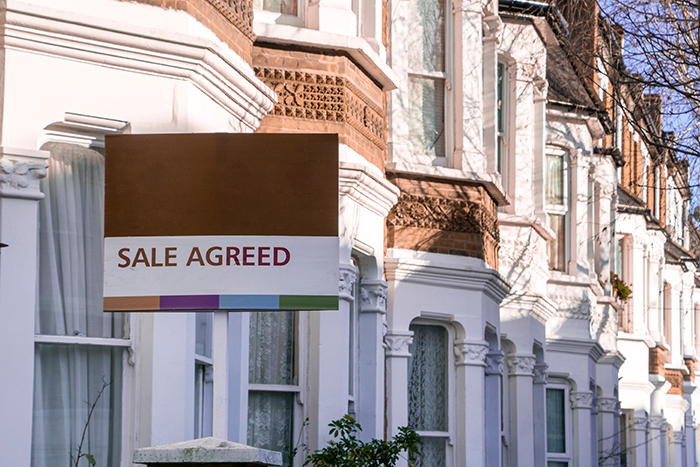
House buyer enquiries fell back to their lowest level in seven months in May “amid interest rate uncertainty” in the second half of the year, according to the Royal Institution of Chartered Surveyors.
New buyer enquiries came in at a net balance of -8% among surveyors, down from -1% the month before, the lowest reading since November, reports the body’s latest UK Residential Market Survey.
The largest falls came in the South East and South West of England, slumping by -27% and -23%, respectively.
It says: “This appears to be linked to the recent scaling back in expectations around the degree of monetary policy loosening likely to be pushed through by the Bank of England during the second half this year.”
The central bank’s interest rate is 5.25%, unchanged from last August.
Respondents also reported a fall in the number of sales agreed posting a net balance reading of -13%, down from +4% the previous month.
House price growth also fell to its lowest level since January, retreating to a net balance of -17% in May compared to -7% in the prior month.
The survey says: “Having held broadly steady in both March and April, the latest reading — being the most negative return since January — suggests that house prices fell slightly during the month.
“That said, while prices pulled back to a certain degree in virtually all regions of England during the latest survey period, Scotland and Northern Ireland continue to see a very different picture, with prices remaining on an upward trajectory in both cases.”
It adds that the “near-term outlook for national house prices “suggests that some further downward pressure could be seen in the coming three months, albeit the net balance of -12% is only very marginally negative”.
However, new home listings lifted to a net balance of +16% in May, rising for the sixth month in a row.
In lettings, tenant demand “appeared to regain some momentum” with the net balance climbing to +35% in May, compared to a +10% the month before.
The near-term expectations point to rental prices continuing to move higher, even if the pace of growth is likely to be more modest than that seen during much of the last eighteen months — the current net balance of +35% is more moderate than the +53% average reported throughout last year.
Shawbrook managing director Emma Cox says: “Another disappointing month for the property market after what had been a positive start to 2024 according to RICS’ latest residential market survey.
“Demand dipped with sales expectations softening further. However, sales activity is expected to pick up later this year with 12-month predictions painting a more positive picture which should give investors and buyers some cause for optimism.
Cox adds: “While an interest rate cut from the Bank of England ahead of the general election is unlikely, many will be hoping that the next week will bring with it clarity for the future of the market as the main political parties lay out their manifestos.
“Until then, there are still deals to be had for professional landlords looking to bring more, much-needed quality stock to the private rental market.”
North London estate agent and former Rics residential chairman Jeremy Leaf points out: “On sales, we saw very little pause in the recent increase of market activity at the time of, and immediately after, the election announcement.
“Our buyers and sellers were telling us they regarded the outcome as a foregone conclusion and saw little difference in the two main parties’ housing policies.
“However, reality seems to have ‘kicked in’ over the past few weeks, not so much due to the likely election result but lingering doubts about the strength of the economy and the pace in the expected drop-in mortgage rates.
Leaf adds: “Buyers are broadly in control so prices are dropping a little and transactions lengthening but keenly-priced homes are still attracting the most attention.
“For lettings, we might have expected the recent fall in letting instructions prompted by more landlords leaving the sector partly in response to regulatory issues, to support higher rents but the reverse has been true.
“The quantity and quality of tenants has reduced and rents are softening as tenants are refusing to pay more while cost-of-living worries remain.”



